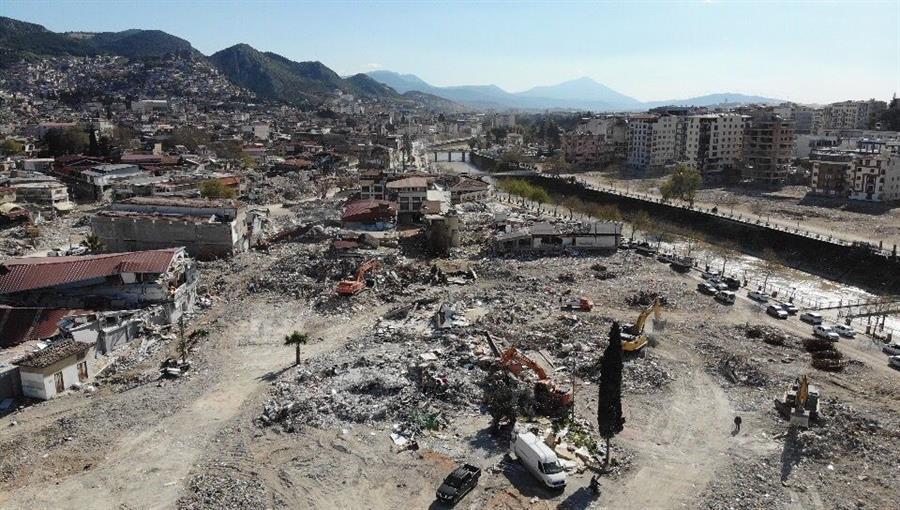
Within the scope of efforts to remove tons of rubble following the deadly Feb. 6 quakes, the Environment, Urbanization and Climate Change Ministry has assessed that some 101 million tons of debris lie in the quake-hit region, 2 million tons of which can be recycled to contribute to the economy, says a senior official.
According to the damage assessments studies, 101 million tons of debris, corresponding to 46 million cubic meters, lie in the earthquake zone, said Eyüp Karahan, the head of the ministry’s Environmental Management Department, during the fifth convention of the parliamentary Earthquake Investigation Commission.
“No matter what we do, we cannot prevent the formation of dust clouds in the cities,” Karahan expressed, adding that the removal of over 16 million tons of debris will be carried out in the southern province of Hatay alone.
Noting that recycling of at least 2.5 million tons of the total debris in the 11 quake-hit provinces is possible, Karahan underlines that this can contribute to the economy.
Providing information about the debris removal system, he pointed out that each pile of debris has a code for storing information regarding activities carried out for systematic debris removal.
Residents of heavily damaged buildings were also allowed to remove their valuable belongings from the rubble, Karahan said.
“In the wreckage areas, we first pull materials with economic value out of the wreckage. We are carrying out operations to remove these belongings from the debris and hand them over to the citizens. The ministry also gives information regarding these materials to the police,” Karahan expressed.
The ministry is constantly measuring asbestos in the field so that timely actions can be taken if a risky situation emerges due to the high level of air contamination, Karahan said.
Touching upon the areas for the dumping of the collected debris, Karahan stated that their first preference is to dump debris on public lands and that if there are no available public lands in the working area, degraded pasturelands will be used for dumping, the senior official stated.
“There is no question of dumping debris in agricultural areas, stream beds or fields that would prevent the flow of water in case of debris existence there,” Karahan said, adding that forests and privately owned lands are not be used for this purpose.